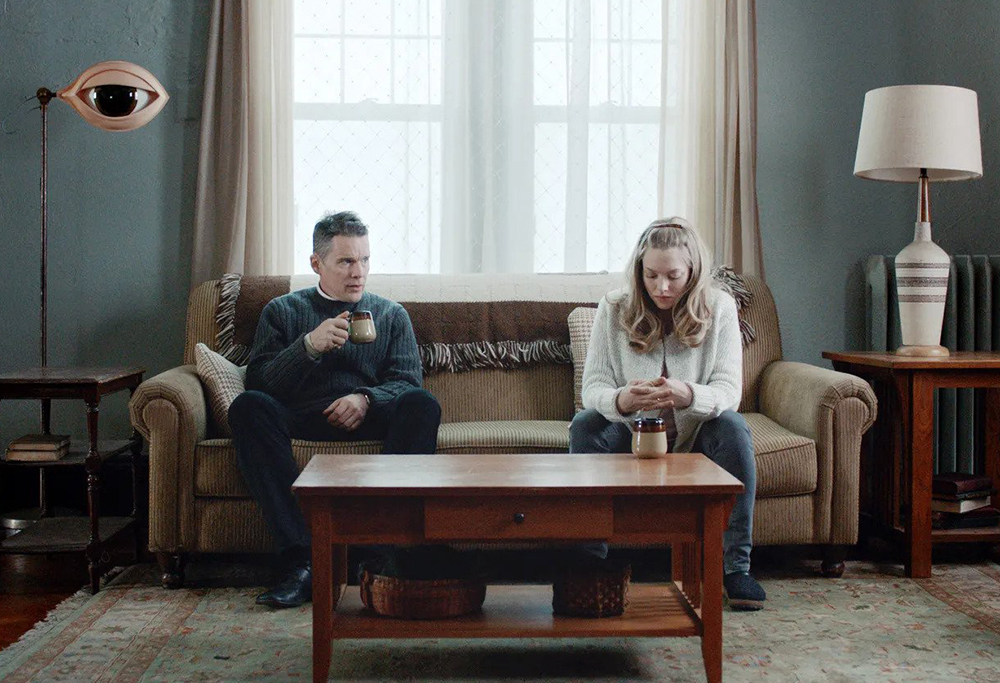If you love movies and film art, then you most likely know who Paul Schrader is. He’s the writer behind classic films such as Scorsese’s “Taxi Driver” and “Raging Bull,” as well as the director behind films such as “Mishima: A Life in Four Chapters” and ‘80s gem “American Gigolo.” In my opinion, however, Schrader is at his best with 2017’s “First Reformed.” The film follows an Upstate New York pastor that spirals out of control after a faith-shaking encounter with an unstable environmentalist. In time, the film causes you to question everything you have just witnessed.
“First Reformed” blends religious faith with themes of environmental destruction, greed, and existentialism. With a great performance by Ethan Hawke as Reverend Toller, the themes and messages are brought to life. Toller oversees the 250-year-old tourist church First Reformed. It’s a small church, overshadowed by its parent organization, the mega-church Abundant Life, which we learn is funded by the head of a million-dollar corporation. He spends his days drinking and writing in-between serving Mass, where he preaches to a few stray parishioners.
Toller contemplates, and then attempts to reconcile one’s religious beliefs with the newfound discovery of the reality in which he lives. He has a deep conversation with an environmental activist at the request of his pregnant wife, and then his beliefs are shaken. Toller starts to ponder the state of our planet; by doing so, he falls down rabbit holes of anxiety, fear, and uncertainty.
It doesn’t help that Abundant Life is an massive house of worship; it acts more like a business organization than a church. Because Toller can sense something is off, he starts to uncover the cracks left in the foundation of the mega-church.

Millionaires and big businesses are at the heart of Abundant Life, not the Lord as they claim. It’s only concerned with attracting large crowds; that, and persuading people that funding large-scale church can buy their way into Heaven.
Toller uncovers more truths about Abundant Life—and how humans are destroying the planet—which causes him to unravel. Hawke does an excellent job here portraying the loneliness and fear one feels when their belief system comes into question. He doesn’t explode in anger or have loud breakdowns. But we can tell what he feels; all is present in his eyes and actions.
Toller begs the question: can God forgive us? Can God forgive us for what we have done to His creation? In a world concerned with making money, electing officials that support money-makers, and using organizations to turn a profit…have we completely abandoned our morals? Humans have created the best and worst inventions. Take plastic; it’s one of the most convenient materials we use, but horrible for the environment. It’s clear that we do not do enough to prevent harmful materials from littering the planet. Is this the core of our morality? Reverend Toller realizes these truths, and it rattles him to his core.